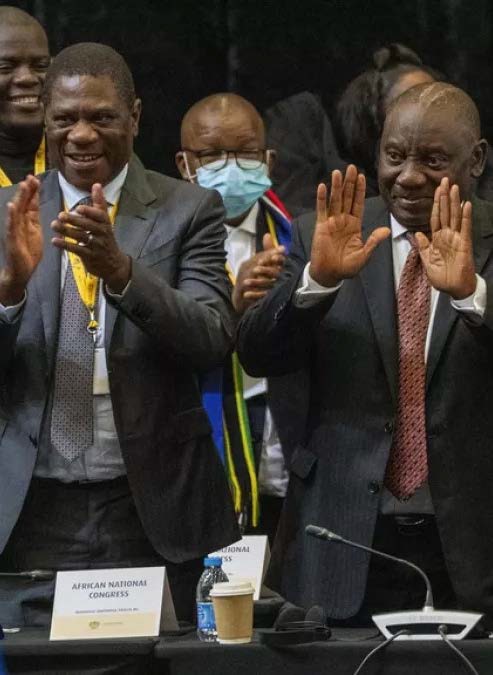ENERGY LINKS

John Igbokoyi is a 4th year engineering student at the…
FOR FUTURE ECONOMIC GROWTH
Peer Review: Dr. Alpheus O. Igbokoyi
Original Paper: Energy Security, Affordability and Availability: Implications on Economic and Industrial Growth in Nigeria.
Original Author(s): Dr. Alpheus O. Igbokoyi
The Reason For Thinking
“No nation can grow beyond its energy development and management pedigree.” A statement made by Dr. Alpheus Igbokoyi in the abstract of his paper, Energy Security, Affordability and Availability: Implications on Economic and Industrial Growth in Nigeria. Having studied electrical engineering and mechanical systems, with a strong practical interest in infrastructure and industrialization, that statement is mandatory for any nation seeking economic growth.
In this article, I review the paper, and I believe you the reader will come to realize Nigeria’s detrimental position, by linking the energy stats that need to be rectified if Nigeria is to realize economic growth.
Energy is required for any of the source of economic growth, be it agriculture, energy, mining, banking, or any other industry/sector. Matter of fact, it cost energy for you to read this article on your device.
Nigeria, and most Afrikan energy players, are in the business of exporting energy rather than utilizing energy for their economic and national growth. This has left the socio-economic status of the nation in jeopardy and calls for stricter governance, or as Dr. Igbokoyi puts it, Energy Security Policy. Energy Security Policies are now mandatory for the securing of Nigeria’s and Afrika’s economic future.
The ‘burn rate’ of a company is the rate at which the company is spending their cash reserves. Transpose that statistic to Nigeria’s main energy source reserve, crude oil, and we see that Nigeria’s burn rate is fast-tracking the country to being an oil importer rather than exporter, leading to further economic ruin.
It is a simple connection: Nigeria (and Sub-Saharan Afrika) is exporting more oil than they retain, mismanaging the retained oil, suffering economic machines such as manufacturing sectors, leaving a weak economy, and a future depleted oil reserve. It is clear to see that chain link leads to total economic collapse if not immediately rectified.
Our current position: Dr. Igbokoyi found that as of 2013 Sub-Sahara Afrika produced 5.7 MMb/d (million barrels per day), of which 5.2 MMb/d was exported, and 1.0 MMb/d of oil products were imported. Sub-Sahara Afrika’s 2013 population was sitting at 943.04 million people. That is 943.04 million people left to use 8.8% of the crude oil they produced, which was also mismanaged.
By exporting the bulk of their oil, these nations starve their industries, especially their manufacturing sector. These are the reasons for thinking. Thought must be put to mind as to what needs to happen.
From Thought To Action
Energy Security Policy is the crowning factor in securing a socio-economically beneficial economy for Nigeria and Nigerians. But getting there requires steps along the way.
Step One: Reduction in Oil Exportation
In the paper, Dr. Igbokoyi strategically presented information on the direction Nigeria is heading using a comparative method primarily against China. Values were presented with the assumption that
1. Nigeria’s energy consumption rate would not grow, and
2. Energy consumption growth rate of 5.6% (annual value for China).
Nature has shown that unless man physically interferes, population growth will naturally occur. Subjecting Nigeria to 2.4 MMb/d production and a 2.7% population growth rate, the following critical stats warrant consideration:
Nigeria is moving from 220 MMb/y (million barrels per year) consumption with 187 million people in 2016 to 550 MMb/y consumption with interpolated 463 million people in 2050 with a 3.28 bbl/d (barrels per day) per 1000 people and 0% increase in bbl/d consumption.
At the direst situation of consumption growing at 5.6% with a 3.28 bbl/d per 1000 people, we expect an increase from 270 MMb/y in 2016 to 4290 MMb/y in 2050. Yes that is now in the realm of billions of barrels per day.
Nigeria’s daily export is growing from 1.79 MMb/d in 2016 with 0% growth from the starting 3.28 bbl/d per 1000 people to 880,000 bbl/d.
At the direst situation, Nigeria is expected to go from 1.65 MMb/d exports in 2016 to -9.35 MMb/d exports with a 5.6% growth rate on a starting 3.98 MMb/d per 1000 people. Yes, that -9.35 MMb/d means Nigeria will begin importing oil at this rate.
Let us interpret what we just pointed out. Nigeria is in terminal trouble. There, it’s over. We can pack it up and call it a day. We will try again in the next life.
But no, let us explore the numbers more to find out how step one really affects us.
Mathematically speaking however, what those numbers mean is this:
First there are 365 days in a year meaning those 220, 550, 270, and 4290 numbers are in fact 0.6, 1.5, 0.74, and 11.75 (or -11.75, meaning we are still lacking) MMb/d.
The numbers in point No. 1 are weighed against 0.61, 1.52, 0.65, and 11.75. These are the remaining after the exports using a daily production of 2.4 MMb/d.
Mathematically speaking the numbers in the first point practically match those in the second. However, it must be noted that these numbers are with an already failing economy with a non-existing manufacturing sector, and little to no industrialization. Meaning:
The projections presented by Dr. Igbokoyi are correct and the alarm needs to be sounded across the Sub-Sahara, and
Nigeria has absolutely no chance of an economy if we keep exporting oil at this rate.
Step One: drastically reduce oil exportation.
Step Two: Power System Revitalization.
In 2020, I concluded a paper called: Re-Installing the Nigerian Energy Sector – Development + Sustainability. From this paper, I published an article in Msingi Afrika Magazine called: Energy in Afrika by Afrikans.
It was quite an enlightening project.
The project revealed the following:
Nigeria’s power generation capacity is 12.522 GW (1 GW = 1,000 MW).
Instant losses are 56.67% of capacity.
Power consumed is approximately 25%.
Nigerian statistical population at this time: 200 million
A comparison: USA generates greater than 200 GW for over 320 million people. That is 36x power generated for just 1.6x the people.
Definitely not calling USA the place to be, but we cannot fault electricity infrastructure endeavor.
In the paper, Dr. Igbokoyi pointed out that according to the United Nations (UN) standard, an industrialized nation generates 1.0 MW per 1000 people. His research further showed:
Afrika’s average is 0.03 MW per 1000 people, and
Nigeria generates 0.023 MW per 1000 people.
Meaning, industrialization is but a dream.
On examination of Nigerian oil export and the Naira value, from 2014 to 2016 the Naira was devalued by 300%. There were major points brought out in this paper:
Graphs depict the correlation between the USD-to-Naira exchange rate and the Nigerian oil revenue. Conclusion: the Naira was devalued harder with lower Nigerian oil revenue. Also…
…the Naira still depreciated during times of high Nigerian oil revenue due to a decline in foreign investments into Nigeria. Hence…
…strict diversification is necessary due to the high crude oil dependency. However, diversification requires electricity to support the emerging sectors providing the economic growth.
The end goal is economic growth, but this will come through energy links starting from reduction in oil exports. Now onto generation.
Using multiple regression on the Chinese power generated per 1000 people as a function of population index and GDP per capita index, the necessities were as follows:
By 2025 and 2030, for a 7% and 10% annual GDP growth rate, Nigeria will respectively have to generate 78.1 GW and 91.4 GW for in 2025, and 114 GW and 147.3 GW in 2030.
By 2030, 2040, and 2050 with a statistical population projection of 272, 355, and 463 million, Nigeria will have to provide respectively 124, 287, and 463 GW of power for an 8% annual GDP growth rate. An average increase of 16.95 MW annually. Unfortunately, with a 2020 projection of 47 GW at just 2% GDP growth rate unrealized, those above numbers are headed the same way.
Annual gas consumption to support the GDP growth rate of 8% will be for 2030, 2040, and 2050 respectively, 7.3, 15.4, and 24.2 Tcf (trillion cubic feet) under the model of 3.5 bcf (billion cubic feet)/day export at 90% uptime.
At an annual GDP growth rate of 2% and 8%, Nigeria will be importing gas for cumulative consumption by 2045 and 2050 respectively under the model of 3.5 bcf/day export at 90% uptime.
As the author pointed out, “if Nigeria was to add 6.0 GW generated power annually, we may attain a 2% GDP growth rate in the next 10 years.” However, desperate times call for desperate measures, and as the saying goes: shoot for the stars, because if you miss, you will land on the moon. Nigeria is better off shooting for an 8% GDP growth rate, and landing on (4 – 6)% if we miss. But the reward of hitting the 8% will be a significant step in the right direction.
Step Two: revitalize and re-install the Nigerian power sector.
Step Three: Incorporate Energy Mix and Positive Stewardship
Dr. Igbokoyi and I both agree on a lot pertaining to this subject matter, not the least of which is: Nigeria is blessed with renewable energy sources.
Total installed solar power in China in 2015 came to 43.5 GW, that number is now 253 GW. Texas has an operational wind energy system. With some flaws. India via ReNew Power is pushing into the gigawatts of installed solar power, but the country already has 39.083 GW.
What has this intense drive for increase in power generation capacity done to China, over the past 30 years, an economy that has grown: with the exception of the COVD-19 situation that resulted in a dip to (-6.78%), www.tradingeconomics.com records 18.3% in Q1 2021, and that -6.78% was adjusted to actual of 3.2%. Prior to March 2020, the growth rate hovered between 6% and 15%, i.e. always growing. Makes you think a country such as Nigeria with many resources should be stratospherically ahead.
Nigeria is exposed to the following sources of energy that should be strategically utilized:
▪ Solar Energy
▪ Wind Energy
▪ Coal
▪ Natural Gas
▪ Waste. Yes, as Dr. Igbokoyi mentioned, London is turning waste into energy. Talk about sustainability.
Just like the human body, a system is only as good as the health of its intrinsic operational protocols. The author of this paper pointed out the necessity of four groups of stakeholder-partnership collaboratively operating for a sustainable and profitable power system resulting in economic growth.
Government and the Citizens. Dr. Igbokoyi accurately pointed out the necessity of the government to educate the citizens, following the initiated venture, of the benefits of working together to make this new power system work for socio-economic benefits.
Government and Investors. Investors are necessary for infrastructural development and sustainability, therefore the author noted that an atmosphere of security, both of investments and personnel, must be fostered by the government for the appropriate investors.
Legislative Arms and the Judiciary. Energy security is crucial and hence calls on the arm of the government responsible for implementing appropriate energy security regulations and policies to provide the necessary energy security to secure Nigeria’s future economic growth.
Federal and State Government. The fiduciary and financial duty of installing a power sector and ensuring energy security is far too great a task for the federal government of over statistical 200 million people to handle alone. Hence, state government will have to play a major role.
It is not enough to stop doing what is not working. Nor is it enough to repair the system. In consideration of population growth, economic requirement, and fluctuations, different sources of energy must be used and guarded for the future economic growth of Nigeria. It must be taken care off, and external interference for selfish purposes must not be allowed. Most importantly, the people must ensure this.
Step Three: vigilantly and prudently use all available resources.
The Whole Story
Nigeria has, a lot of resources. An argument can be successfully made for that being one of the main reasons for the orchestrated destabilization in the country, and subsequently the Sub-Saharan region. Because that region in fact is the richest region in the world, and it is politically cheaper to extract resources from a place that is politically unstable.
Dr. Igbokoyi accurately provided in the paper the trajectory Nigeria is on and why strict attention is needed for a socio-economically beneficial future. “An improved economy will bring more wealth to the people and subsequently improves the socio-economic life of its citizens.” That statement made by the author is the reason for energy security, because as shown, the links in the energy chain that leads to the economic security is broken in Nigeria.
Developing the domestic market is necessary because high resources export and high consumer goods import is costing the country, and the primary reason for this is the lack of energy brought about by the lack of energy security measures, and lack of economic diversification.
With a competitive future ahead, it is necessary that steps are taken to rectify the cracks and breaks in the energy links that lead to future economic growth.
What's Your Reaction?
John Igbokoyi is a 4th year engineering student at the University of Victoria in Canada, where he is majoring in electrical engineering, and minoring in mechanical systems, backed up by courses to strengthen his business acumen. He is involved in the stock market, as well as projects in the aerospace industry, and energy sector. He has spent time studying and understanding applicable knowledge necessary for the sustainable development of the infrastructure and economy of a society, for progress and most importantly socio-economic benefits. He believes that one must at all costs pursue that which they believe they are destined to do; with dedication, focus, and commitment, and the relentless pursuit of all that is good, anything is possible.


















